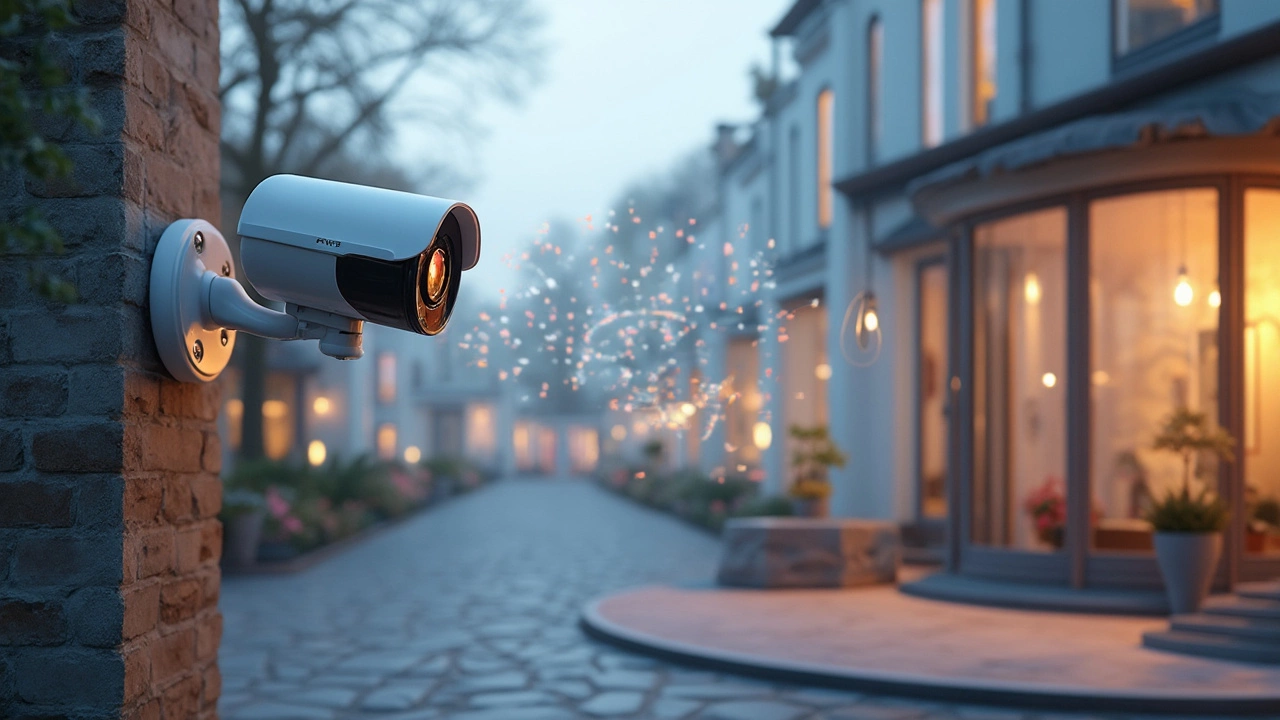When you set up a CCTV camera, a video doorbell or a wireless alarm, you probably think about the camera quality or the sensor range. But there’s one more factor that can make or break the whole setup – the speed of your internet connection. A slow or unstable link can turn a state‑of‑the‑art system into a blurry, lagging mess.
Most modern security gear talks to your phone or cloud storage over Wi‑Fi. If the connection can’t keep up, you’ll miss motion alerts, footage might not upload, and remote viewing becomes frustrating. In short, a weak internet speed means weaker protection.
Security cameras typically stream video at 720p or 1080p. Streaming a 1080p feed needs about 3–5 Mbps per camera. Add a few more cameras, and the demand climbs quickly. If your router can only deliver 10 Mbps total, you’ll see choppy video or an alarm that won’t trigger in real time.
Smart doorbells, like Ring or video doorbells, upload short clips when someone presses the button. Those clips are around 2–3 MB each, requiring a quick burst of bandwidth. A laggy connection can delay notifications, leaving you unaware of a visitor for minutes.
Wireless alarms rely on instant alerts. They don’t need high bandwidth, but they do need a stable, low‑latency link. High latency (slow response time) can cause false alarms or missed triggers, especially when the system checks for updates every few seconds.
1. Check Your plan. Look at the download speed your ISP promises. For a typical home with 4‑6 cameras and a doorbell, aim for at least 25 Mbps download and 5 Mbps upload.
2. Upgrade your router. Older routers struggle with multiple devices. A dual‑band (2.4 GHz + 5 GHz) router can spread the load and keep security cameras on the less crowded 5 GHz band.
3. Place the router centrally. Walls and furniture block Wi‑Fi signals. Position the router where it can reach each camera without too many obstacles.
4. Use Ethernet where possible. If a camera is near a power outlet, run a short Ethernet cable. Wired connections eliminate latency and free up wireless bandwidth for other devices.
5. Limit bandwidth hogs. Streaming movies or large downloads while your security system runs can cause the video feed to stutter. Schedule heavy downloads for off‑peak hours.
6. Monitor your network. Many routers have built‑in tools that show real‑time speed and device usage. Spot a device that’s eating up bandwidth and adjust its settings.
7. Consider a mesh system. If your home is large or has dead spots, a mesh Wi‑Fi network spreads the signal better than a single router.
By keeping your internet speed in check, you make sure every alert reaches your phone instantly, every clip uploads without delay, and every camera streams smoothly. The result? A security system that actually works when you need it most.
So before you buy the next fancy camera, take a quick look at your internet plan and router. A little tweak can turn a shaky setup into a reliable guardian for your home.

WiFi CCTV cameras are a great help for security but many worry if they might cause a slower internet connection. This article delves into how these cameras work over WiFi, explores how much bandwidth they usually use, and gives handy tips for ensuring your internet speed stays up to scratch. By understanding the factors affecting your network, you can optimize both your CCTV and browsing experience.